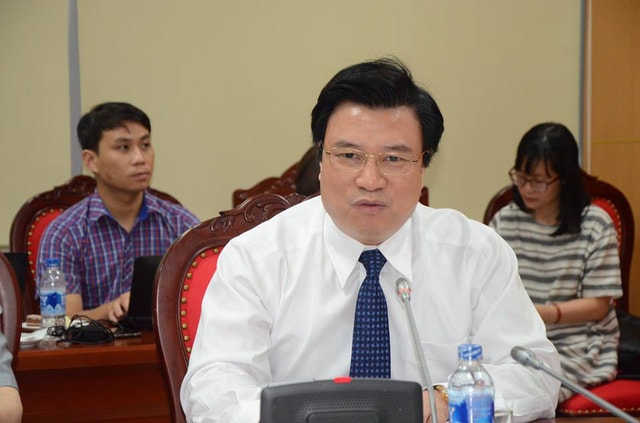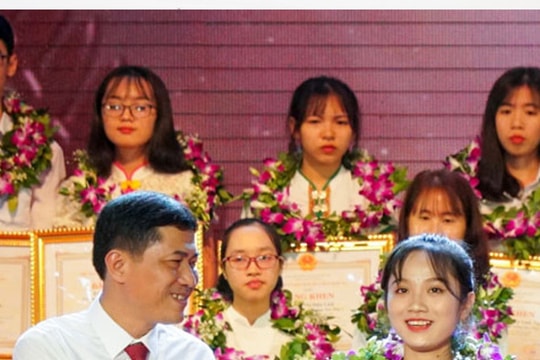2019 National High School Exam: Localities will not be allowed to grade the exam themselves
That is the information shared by Deputy Minister of Education and Training Nguyen Huu Do at the online discussion "Exam innovation - Practice and issues raised" held this morning (September 13).
This morning (September 13), the online discussion "Exam innovation - Practice and issues raised" organized by the People's Representative newspaper took place.
Sharing at the seminar, Dr. Nguyen Huu Do said, regarding the exam organization method, the Ministry of Education and Training reported to the Government that it agreed to keep this exam method stable until 2020 and the following years in the spirit of inheriting the results of the exam plan of previous years and overcoming the shortcomings of this year.
Deputy Minister Nguyen Huu Do, on behalf of the Ministry of Education and Training, thanked the local steering committees and the entire local political system for participating and closely coordinating in organizing the National High School Exam for many years.
To overcome the shortcomings of this year's national high school exam, Mr. Do said, the Ministry of Education and Training focuses on supplementing and improving the quality of the question bank in the direction of more diversity, quality, and standardization, ensuring there is data and basis to create a suitable exam, achieving the set goals.
Perfecting regulations, overcoming technical limitations, creating tight technical barriers, with no loopholes, and a control mechanism, so that even those with IT skills, if they intend to cheat, will find it difficult to do so.
In addition, strengthen management work, especially inspection and examination work. Close coordination between universities and colleges with departments to have quality exams. Strengthen training for teachers and lecturers who invigilate and grade exams.
“Especially, there are adjustments to the exam marking, so that teachers do not mark students from their own province, and local university lecturers do not invigilate or mark exams in their own locality, to ensure objectivity. In the coordination with the locality, the central and local steering committees must closely coordinate to direct the exam,” Mr. Do emphasized.

Deputy Minister Nguyen Huu Do said that the Ministry of Education and Training will not allow localities to grade their own provincial exams to overcome problems of exam cheating like this year.
Currently, the revised Law on Education is being considered for comments in the upcoming session of the National Assembly. Deputy Minister Nguyen Huu Do said that regarding the Law on Education, the 5th Session of the 14th National Assembly has allowed the Ministry of Education and Training to transfer the project to build a Law amending and supplementing a number of articles of the Law on Education into the project of the Law on Education (amended) and will amend it quite fundamentally and comprehensively.
According to the Deputy Minister of Education and Training, the viewpoint of amending the law is to institutionalize the Party's Resolution into the Law, especially Resolution 29 of the Central Committee on fundamental and comprehensive innovation of education and training; concretize the 2013 Constitution related to the development of education and training, including major policies, especially the implementation of compulsory primary education or Resolution 29 of the Central Committee aiming to implement 9 years of compulsory education by 2020.
Ensuring comprehensiveness, feasibility, suitability with practice, overcoming difficulties in the process of law implementation; Ensuring inheritance and development of legal provisions, considering the Law on Education as both a framework law and a foundation for other specialized laws.
“Because the amendment is quite comprehensive, I hope that voters nationwide and National Assembly deputies will pay attention and contribute many opinions. The Ministry of Education and Training is open to receiving opinions to revise the Education Law to complete it, meeting the requirements of educational development,” Mr. Do shared.




